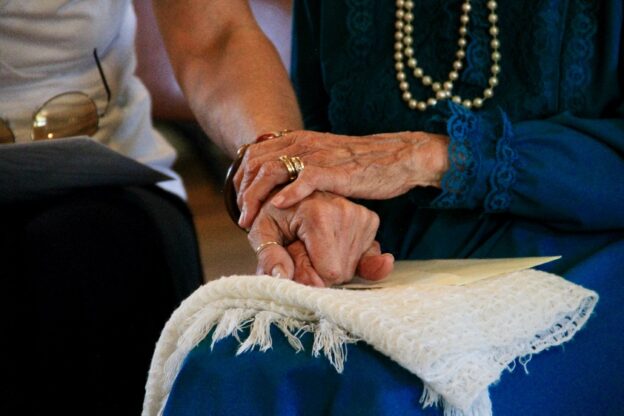
As humans, we develop many relationships throughout our lives that we hold dear. Yet, one of the most profound relationships for many people is the bond that we hold with our grandparents.
The loss of a grandparent is often many people’s first encounter with death and the grief that can accompany it. We often view our grandparents as wise matriarchs and patriarchs, and when they are no longer with us, it can feel as if our whole family dynamic has shifted.
Losing a loved one is one of the hardest things that we will experience in life, however, there are some ways that you can help yourself to both honour the memory of your grandparent, and move forward with your life as they would have likely wanted you to do.
Managing grief
Grief is complicated and there is no instruction manual on how to deal with it. Every single human relationship is entirely unique and while some people may feel overwhelmed with sadness, others may feel numb. You may feel guilt, or you may feel relief. There is no right way or wrong way to feel, it is all part of the process of working through your emotions.
Helping children with grief
For children, dealing with the loss of a grandparent can be a tough experience too. This might be their first experience of bereavement and grief and it may be the first time that they understand the permanence of it.
Most experts agree that honesty is the best approach when explaining the loss of a grandparent to children. Phrases like “gone to sleep” or “passed away” can be confusing and misunderstood, so it is best to be as direct as possible, whilst still being there to comfort them.
It can be helpful to involve your children in the way that you choose to remember them. For example, you might want to ask them their thoughts when choosing flowers, or choosing music for their funeral. Whether you choose to have your children attend their funeral, or not, is a personal choice, but many bereavement experts suggest that it is best to ask the child their opinion and if they decide not to attend, that you provide them with another way to process their feelings and remember their grandparent.
Remembrance
For many people, one of the best ways to process their feelings and thoughts is to dedicate time to remember their grandparents. This might be something simple such as going for a walk somewhere that they liked, sitting down to share stories of their life or happy memories with your loved ones. You might choose to put together a memory box full of photographs or listen to the music of songs that they enjoyed.
Equally, you might decide to start a bigger project. Some people choose to dedicate time to documenting their grandparent’s life – either by writing down key events in their life for future generations or piecing together gaps in their family tree with research.
Reaching out
The loss of a grandparent can have a significant impact on you and your family. It is important not to push aside your feelings and thoughts, but rather pay attention to them. Many people find great solace in talking with other family members or friends, or reaching out for professional support if their grief becomes too much and starts to affect their daily lives.
If you feel this way then you should reach out for support from charities such as Cruse on 0808 808 1677 or Grief Encounter Helpline on 0808 802 0111.
